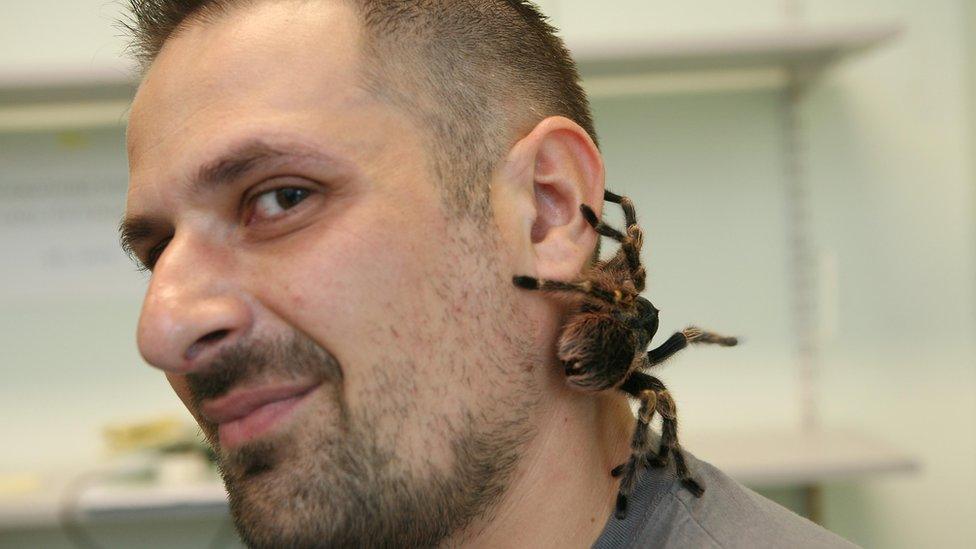Could Irish spider venom cure diseases?
- Published

Researcher Dr Michel Dugon said venom from at least two species screened had medicinal properties
Spiders are summarily put to death with rolled up newspapers every day, with the lucky ones simply being ejected from our homes.
Few people have a place in their hearts for arachnids.
But could these tiny creatures - they are never as big as you imagine - actually help humanity cure deadly diseases?
Researchers at NUI Galway say the venom of some spider species found in Ireland could have medicinal uses.
The venom could be used to kill bacteria such as E-Coli, said Dr Michel Dugon from the university's school of Natural Science.
'400 venomous species'
There are more than 400 species of spider in Ireland.
The false widow deals with cancer cells and healthy cells in different ways
While none are dangerous to humans, they are in fact all venomous, and it is the poison that could have medical value, says Dr Dugon.
"At least two species that we have screened so far have medicinal properties," he told the “óĻó“«Ć½'s Good Morning Ulster programme.
He is researching spider venom, isolating compounds to see what their potential is for targeting cancer tumours and pathogens.
"The common false black widow spider actually deals with cancer cells in a way that is different than healthy cells," said Dr Dugon.
He added that he was surprised to find a cave spider in Connacht effectively kills bacteria that are harmful to human beings without harming human cells.
Cancer treatments?
These findings could potentially lead to new treatments for cancer, said Dr Dugon, but it would take a long time to develop such therapies.
This is the first time Irish arachnids have been studied in depth, said Dr Dugon, because spider specialists tend to concentrate on larger, more charismatic, species that are known to hurt people.
"The 400 Irish species have been left behind," he said.
Fluids from jellyfish, barnacles, sea sponges and octopus ink are also being tested for the medicinal properties by the Galway researchers.
Listen back to “óĻó“«Ć½ Radio Ulster's The Secret Life of Spiders here.
- Published14 October 2015
- Published31 August 2016
- Published23 October 2013